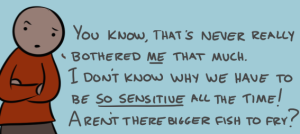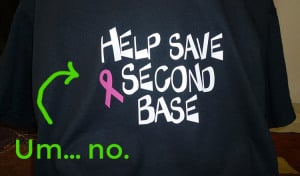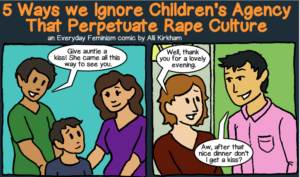It’s me, Kat Lazo, and I know that I’ve been gone for like a hot minute now, but I wanted to come back and talk about something real important: privilege.
“That’s right! You tell them to check their privilege!”
Actually, I wanted to talk about us Latinx checking our own privilege.
“But you’re a woman! And you’re a Latina! You’re not privileged!”
Yeah, and as a Latina, I know that we’re marginalized by the media and public policies and by society…
“Exactly! That’s what I’m saying!”
Let me finish. But we’re not all marginalized in the same way or even to the same degree.
“Huh?”
Yeah, it’s all dependent on a multitude of factors. For example, in my case: immigration status.
I’m a US citizen. Therefore, I’ve never actually had to fear being deported or being separated from my family.
Or whether you’re able-bodied or not. I am. And therefore, I’ve never had to think ahead of time of how I’m navigate certain spaces.
Class. Although my parents are immigrants and they sure as hell did not grow up middle-class, I did. And because of that, it dictated where I went to school and the quality of education that I received.
Gender. Yeah, I know I’m a woman, and trust me I know that women are marginalized in our society; but I’m also a cisgender woman, meaning that I identify with the gender that I was assigned to at birth. And therefore, I don’t experience any type of internal struggle about my gender identity. I don’t have to think twice about using, let’s say, a public restroom, and therefore fear that someone is going to physically harm me.
And another example is race.
“Ah ha! See now that’s a privilege you don’t have, because your race is Latina, and Latinos are a marginalized race.”
Actually, Latina isn’t a race. It’s an ethnicity. It identifies people who derive from Latin America. And Latinx people – a gender neutral alternative to “Latino” “Latina” – can be any race. There are black Latinx with curly kinky hair, there are light skinned Latinx, there are those of us who have brown eyes, green eyes, blue eyes, straight hair…
For example, I racially identify as Indigenous, but I also acknowledge my light skin privilege.
“Wait, wait, wait. Excuse me?”
Yeah, light skinned Latinx experience certain privileges unlike darker Latinx. It’s called colorism.
“You mean like, just a preference, right?”
Well, it’s not just a preference. Colorism is a principle and a practice that treats light and fair-skinned people better than those with darker hues. So yeah, colorism can be practiced through having, let’s say, a dating preference for a light skinned Latina, like myself. But colorism is also upheld through systems which then have serious ramifications on quality of life.
“Give me an example.”
Latinx who identify as white make up to $5,000 more than Latinx that identify as black.
Latinx that identify as white have also had lower unemployment and lower poverty rates than black Latinx. Light skinned Latinx are perceived as smarter than darker Latinx.
I wanted to make this video because I think many of us Latinx often forget to check our own privilege. For me, as a daughter of immigrants who grew up in a predominantly white neighborhood, it became all too easy to understand how my family and I were marginalized by society at large. But what didn’t come as easy was understanding the ways that I was privileged outside of that neighborhood and on a grander scale.
Understanding my class privilege, understanding my, immigration status, understanding my proficiency of the English language; but also understanding my light skin privilege, like that time in junior high school when my white math teacher pulled me to the side to tell me to stop dating my black boyfriend because, “I could do much better,” but yet she never said any of that to my darker skinned Latinas who were also dating black guys.
Or the many times that I went on an audition for a “Latina” role, and the casting room that started with many shades of Latinas, ultimately narrowed down with just a room full of light skinned Latinas like me.
If we really want to strive for the liberation of all people of all Latinx, then we not only have to understand how systems of oppression work, but we have to recognize the ways in which we’re perpetuating those systems of oppression through those privileged identities.
Only then can we better support and stand in solidarity with our trans Latinx brothers and sisters, with those of that are undocumented, with those of us that are domestic workers, teen moms, those of us that have physical disabilities, mental illnesses…
I know that this is a lot to take in and this one video will not give you all the knowledge you need in order to check your privilege. But you know, maybe the video got your wheel turning and you do want to learn some more. So make sure to check out the great resources that I have in the description box down below, like a lots of Raquel Reichard’s writing which I’ve included in this video, along with non-Latinx identify focused resources which are still applicable.
Alright, until next time, thanks for watching!




















